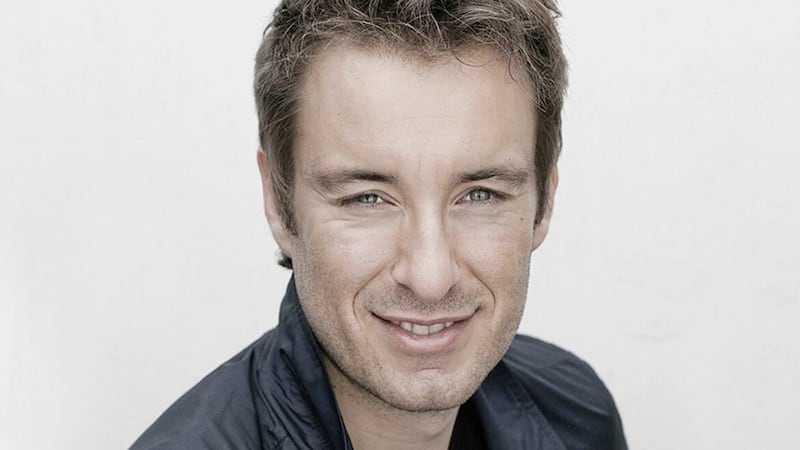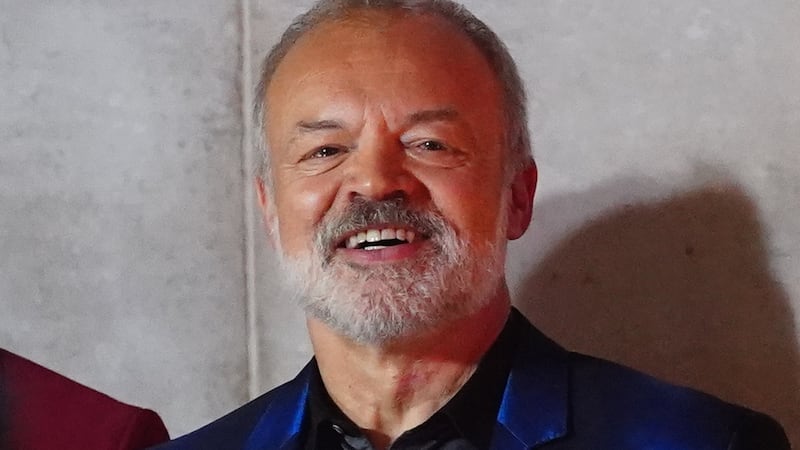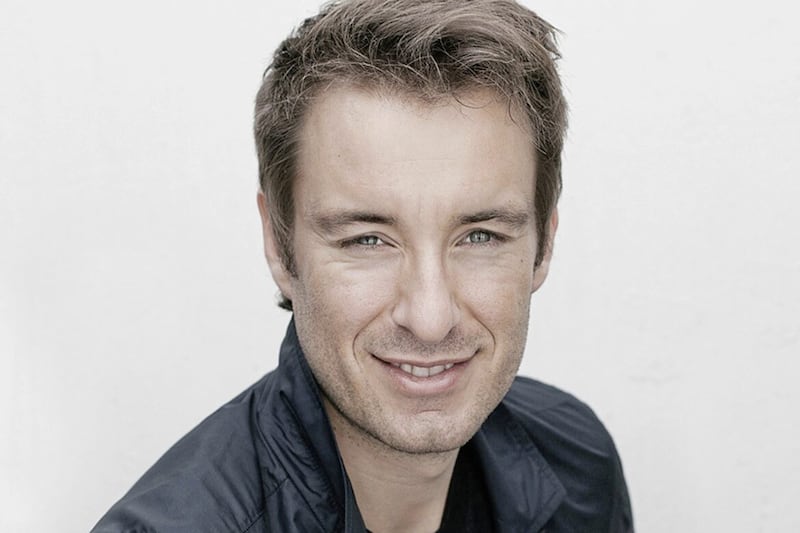WHO would have imagined the teenage Yuriy Yurchuk, who played and sang The Show Must Go On - his favourite Queen number - at home in Ukraine, would end up a rising star in opera?
Yet he is playing Giorgio Germont, the complex father of La Traviata's romantic lead, in the much discussed Northern Ireland Opera production landing at the Grand Opera House from today.
The tall Kyiv-born 39-year-old discusses his on-off journey to operatic success over a strong tea and shortbread biscuits at The Fitzwilliam Hotel.
Music was always there but circumstances dictated a different career, as Yurchuk explains.
"There was no musical background in my family, although many young people get a musical education. We were poor and it was a question of survival," he says.
"When I learnt working with finance would make money, I became an accountant."
The singer had a glitzy career in the field for several years, eventually settling in Chicago in charge of corporate financial planning.
Yet although Yurchuk had attempted to pursue his musical career, various teachers were less than encouraging: "As a teenager, I had music lessons and was told I had no voice."
This seems incredible hearing his rich, emotive vocal instrument now. His Marcello, for example, in NI Opera's winter production of La Bohème, was a comic and musical revelation.
It wasn't until Yurchuk, in a final throw of the die, took music lessons in America and found the right teacher - Marc Embree, an ex-New York City Opera star, who told him he was a natural bass-baritone and should concentrate on a lower register.
"Marc Embree was amazing and he told me he could teach me about opera and classical music," he says.
This fazed the Ukrainian who had no knowledge of the operatic repertoire. In fact, he'd never even seen an opera.
However, he then "went to see The Tales of Hoffmann in Chicago - and absolutely loved it".
This, Yurchuk realised, was his world; he says he loves opera's storytelling ability and its emotional reach.
Persistence is clearly an Ukrainian trait, as seen in the determined response by Yurchuk's countrymen and President Volodymyr Zelensky's to the Russian invasion.
Determination led to Yurchuk reaching the status of principal artist at London's Royal Opera House in 2021, having come through their development programme.
Although he has been based in Camden, north London for some years, he still has family links and strong emotional ties to Ukraine.
Asked if he minds talking about the painful subject of his homeland's invasion, Yurchuk says not at all. He has been involved in a kind of cultural activism from the start, singing his national anthem near Downing Street when the conflict erupted.
Its stirring lyrics start with the lines: "The glory and freedom of Ukraine has not yet perished/ Luck will still smile on us brother Ukrainians..."
The commitment is clear in Yurchuk's moving singing of his national song. He has, with Ukrainian colleagues, been fundraising too and has helped raise £250,000 for the cause.
If you check out the YouTube film of Yurchuk singing to a packed Roundhouse in London at the Night for Ukraine, you'll hear an expressive piece of music, the sort of thing that might almost be a French chanson sung in a nightclub. In fact, it is, a Ukrainian folk song.
This musician has range. Watching a video of Yurchuk perform one of Mozart's finest arias for baritone, the Deh vieni alla finestra ('Come to your window, my love') from Don Giovanni, you can see what a fine actor he is.
His hands almost flutter, his face pleads, in this seduction song as he vows he'll die without seeing the object of his affections.
It's not enough for the fat lady to sing in opera today, a performer needs decent acting skills and maybe they need to be trimmer than in the past. Yurchuk has studied the Stanislavski acting method and believes you base a good performance on aspects of your own experience.
Following the Method, as it's known (Dustin Hoffman is a follower), leads to authenticity onstage. In La Traviata, directed by stellar artistic director Cameron Menzies, Yurchuk says the psychology and characterisation are spot on.
"It's about making the characters believable. You have to work out what they're feeling..." he explains.
This cuts against the notion, now outdated, that opera is about artifice, the French and Saunders sketch idea that it's frilly OTT music (which of course it often is, but for a reason).
As Menzies has noted, opera begins when speech isn't enough. Yurchuk says that for him opera has the highest function of all, transforming our attitudes: "It's a means of dissipating the hatred that leads to war."
Like the human psyche, opera is multi-layered. We discuss one of Giorgio's arias, Di provenza il mar, and the way it underlines the character's duplicity.
Yurchuk has sung in another production of Verdi's great, which he says was different. But, he adds later, each of the four NI Opera performances - the first is tonight, with others on Tuesday, Thursday and next Saturday, all at the Grand Opera House - will have a particular character. "It will evolve," he says.
In La Traviata, one of the themes is mortality. Violetta, a good time girl when we hear her talk of the pleasures of life in Sempre libera, is in fact dying of consumption.
Her illness leads to a lot of plot twists and turns used by Verdi to suggest moral dilemmas. It is oddly contemporary, especially in a post-Covid world. And it's complicated.
Yurchuk explains: "Could she have survived if Alfredo had behaved differently? We don't know."
In private life, he is based in Camden with girlfriend Yulya, who works in marketing. Yurchuk says they are enjoying riverside life in Belfast. How does he relax while working in a business he describes as "intense" and where "you're being judged on personal qualities all the time"? "We dance salsa," he says.
Looking ahead to Ukraine's future, Yurchuk may not be optimistic but wants to find hope.
"My country is used to being chopped up. And Putin is a good chess player," he observes.
"Yet Ukraine has a spirit of independence which cannot easily be quashed."
An opera singer's life is busy and disciplined. As well as not eating too much after a show - "you can put on three pounds in a performance" - Yurchuk reveals he works out and plans ahead.
While looking forward to doing La Traviata, Yurchuk is also anticipating a long run in Eugene Onegin for La Monnaie House in Brussels.
The show must go on.
:: La Traviata by Northern Ireland Opera is being performed at the Grand Opera House in Belfast tonight and on September 13, 15 and 17 (goh.co.uk). More at niopera.com and yuriyyurchuk.com.




